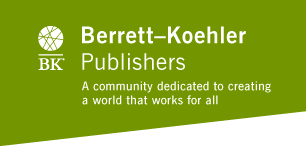The Dreaded P Word: 4 Pieces of Advice for Building Your Platform
This summer was marked by a rather momentous professional landmark for me: I had my first intern! It was very exciting, rewarding, and you will be hearing from our interns next month. I was inspired by my intern, Alyssa, to write this week’s Confession. Her refrain all summer, reading through our manuscript submissions, was “I wish people knew what to do before writing their book!” So, what should you know? This will be a two-part post, with this weeks’ being:
Part One: Platform

It is never too early to start building your platform. Contrary to conventional assumptions, a book does not start with an idea. That idea needs to come from somewhere, and nurturing the “somewhere” will ultimately contribute more to your book’s success than the idea itself. This should not be as intimidating an idea as it first appears! Most people do write books in response to a community or societal need that they see not being met. The key mistake people make is that they see the need and then cloister themselves in their own head, conceptualizing a solution. Instead, reaching out to that community, engaging with it, and beta testing solutions is not only powerful platform building, but will also result in your solution being precisely tuned to the needs that you are trying to serve.
What to do?
To make this weeks’ confession even more fabulous, I have called in the expertise of our Digital Producer and Editor, Charlotte Ashlock. We had a chat about what you should do for your platform pre-book, and she shared some of her hard-won tips.
Start building an email list.
Your email mailing list is your most powerful tool. Having an email list does not mean you have to spam your readers with a weekly email: people are more likely to open emails that are deeply intentional and targeted. Only write when you have something to say. You don’t have to be on a regular schedule, you just need to make sure every email adds value to your reader’s lives.
How do you get emails for your list, you ask? This depends a little on the subject matter of the book you’re writing. If you’re writing your book to support your business, the strategies described in Email Persuasion, by Ian Brodie, could be a good fit for you. If you’re more of an activist than a businessperson, take a look at sites that campaign for causes like yours. In general, learn from the people you admire. What are the outreach strategies of the thought leaders you love?
It also helps to have a sign-up incentive. Offer people a “free gift,” for joining your list. Digital content related to your book, cause, or organization is best, because it costs nothing to give it over and over. For example, Jon Morrow, one of the Internet’s most successful bloggers, gives “Headline Hacks: a Cheat Sheet for Writing Blog Posts that Go Viral,” to everyone who signs up for his list.
Choose ONE social media outlet
Newbies to social media often feel like they’re supposed to have a presence on EVERY social media site, and end up feeling too overwhelmed to even start. This is simply not true. From a publisher’s point of view, one really strong social media presence is preferable to many weak ones. We’re looking for evidence of leadership, and it’s easier to demonstrate leadership if you’re focusing on just one place. So choose your favorite platform -one that you feel comfortable using- and try to have fun connecting with your future readers. There is no “right” site. Wherever you have the easiest time building relationships, is the right site.
Twitter will be no good to you if you hate using it. Facebook will not work if you only have five followers and all you post are funny cat videos. (Actually that is a pretty successful strategy if your book is going to be about funny cats. In general, post a blend of things that relate to your book, and things that are just fun. Show both your author side and your human side.) Still feel uncomfortable starting? A social media publicity company used by many Berrett-Koehler authors, provides short free ebooks with step-by-step guides to social media skills. This can be a great place to get started.
Be “relentlessly helpful” on the topic of your book
This one is a gem: Charlotte points out that the best way to build your following and your credibility is to reach out and help people using the ideas you want to write about. Volunteer with like-minded organizations. Reach out to people who are doing similar work to yours. Ask if you can help them. Ask to interview them for your blog, or offer to guest post on theirs. You will meet people, make connections with likeminded people, and learn how your ideas work, where they don’t work, and how they serve those who need them.
Remember, Your Book Is Not For You
If it were, you could write it and keep it on your desk, and just read it yourself. In trying to publish a book, you are writing for the benefit of your audience. That audience should exist AND be keyed in to you as an evangelist of their cause. They need to know who you are and trust you as a source from whom they will be willing to buy a book (i.e., ideas.) Building your platform is not only the way you gain credibility, but also the process by which you learn what your audience needs and wants. It is an invaluable opportunity to learn the best way to solve the problem you set out to tackle, and your book will be all the stronger for it. And, as an aside, if you do all this successfully, a publisher will probably come to you.
Brought to you by....
Confessions of an Editorial Assistant

About Anna Leinberger, Editorial Assistant
There is no shortage of information in the world about how to submit a good book proposal to a publisher or an agent. Yet as every young thing who has come up through an editorial department at a book publisher knows, much of this information goes unheeded. In fact, much of what makes a good proposal is actually embedded in the proposal guidelines themselves! We tell you exactly what we want!
And yet.
My answer to this, in the spirit of BK and stewardship, is to add a voice to the milieu, and to address specific issues that I see arising repeatedly. In other words, I am offering you a free sneak peak into our values and the process by which we evaluate proposals and manuscripts at a non-fiction publishing house!
I want to make your book proposals better.
Anna is an editor and (with the advent of this column) a writer living in San Francisco. She majored in dead languages at Oberlin and then proceeded to gallivant all over the world teaching various things to various age groups before succumbing to the siren song of the beautiful bay area. When not working, she likes to hang upsidown from various apparatuses and sail fast boats. You can follow her on twitter here: https://twitter.com/AnnaLeinberger
 0 items in cart
0 items in cart









